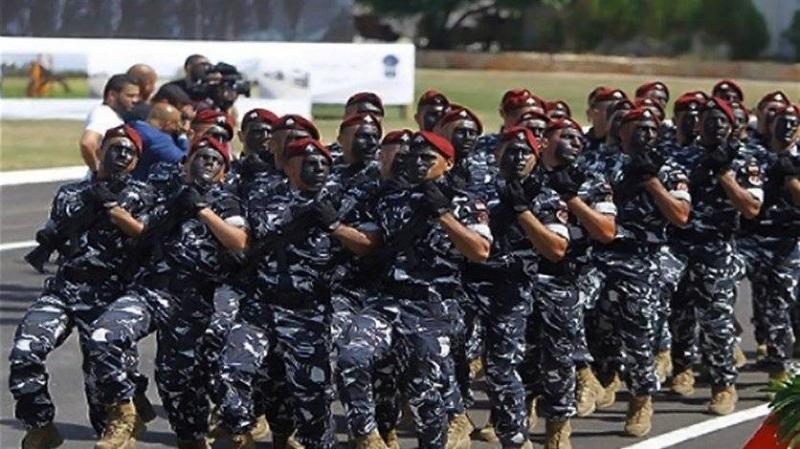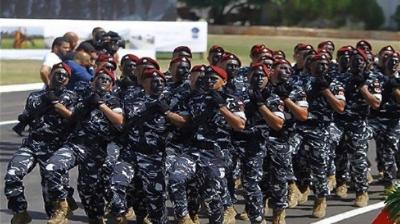On the sixteenth of this month, the Sheikh Zayed Bin Sultan Al Nahyan Medical Center hosted an event to receive a donation of chronic disease medications from the Qatari Red Crescent, which was a welcomed initiative at a time when any assistance is needed. While the crises have impacted all sectors, the discussion during the event regarding the institution's situation was concerning.
Support for healthcare services was the focus of the event. This sector is certainly not the only one affected, but it is where we start. Approximately 150,000 active personnel and retirees, along with their families, benefit from it. However, its budget has decreased from 100 million dollars (equivalent to 150 billion Lebanese pounds) before 2019 to nearly 4 million dollars due to the currency collapse. The General Director of Internal Security Forces, Major General Imad Osman, emphasized during the event the dire reality of the 95% drop in the budget, which the directorate can no longer bear. He stated: "We have tried various solutions, and those who are unaware of our situation believe we are inadequate... At a time when the strategic vision of the Internal Security Forces is encapsulated in the slogan 'Together Towards a Safer Community', the Lebanese society specifically must unite to achieve this safer community."
Osman added: "The security personnel have a constant sense of responsibility to protect all citizens’ lives, yet they receive no assistance to maintain their lives and conditions on all levels, while living under the daily pressure of ensuring aid is not an easy equation." With more details, he noted: "I am trying by all means to secure assistance and support from some citizens we are proud of; we managed to obtain 3.14 million dollars this year, as we were paying daily between 20,000 and 60,000 dollars, but these amounts have dwindled. Thus, we were forced to reduce medical assistance during this period as it exceeds our capabilities."
This assertion is indeed worrisome.
What if?
Reflecting on pre-2019 crisis times, former Minister of Interior Mohammed Fahmy mentioned to "Nidaa Al-Watan" that "Internal Security Forces members were somewhat satisfied with their modest salaries since healthcare and medicines were secured for them and their families. However, after the crisis, despite the tragedy that befell Lebanon and the collapse of the economic, financial, and monetary system, many of the institution's personnel continue to report to their work centers to carry out their assigned tasks, all in the interest of protecting the citizen, with the available resources, and they hope for the provision of medicine, nothing more."
What is the solution then? "So far, the situation – or, if I may say, the tragedy – affecting military and security forces remains relatively contained. However, further economic deterioration is uncertain in its outcomes on this front. Has the government considered what might happen from any individual, even if they are affiliated with a military security institution? Have they thought about what if the child of a security personnel member dies at the entrance of a hospital that refused to accept him for treatment?" Fahmy responds with a question that resembles an acknowledgment of the lack of solutions.
It is not an exaggeration to assert that the current collapse has not been witnessed by any public, private, or security institution, according to Fahmy. He continues: "Since all studies and analyses indicate a lack of solutions, in order to preserve this institution that we all need, it is essential not to ignore it and to support and uphold it to the greatest extent. The institution's personnel are a segment of society that protects people and institutions and cannot be dispensed with, no matter the cost."
Certainly, there are those who always seek to find solutions, but there are many obstacles. For example, MP Ghassan Skaff submitted an urgent proposed law in the Parliament last September in response to the urgent need to secure financial assistance for military and security personnel. What does he tell us about this proposed law? "As a result of the economic deterioration, instances of fleeing from military forces have increased, and loyalty has shifted to whoever pays more instead of loyalty to the state. Therefore, by virtue of my international relations, I was able to secure donations from international organizations and some countries, especially Arab and Gulf ones. I suggested that a monthly amount be paid to an individual at 100 dollars, to a sergeant at 200 dollars, and to an officer at 300 dollars." However, it is no surprise that donor countries and international organizations refused to deliver funds through the ministries to the Lebanese state, as experiences of "aid disappearing" do not encourage much. Thus, the suggestion was made to create a fund chaired by the army commander with a committee overseeing the disbursement of military personnel funds. So what happened next?
An unhurried proposal
The proposal, despite its significance, did not obtain the expedited categorization to be sent to the committees. It is currently with the Defense and Interior Committee, awaiting transfer to the General Assembly when the parliamentary council is permitted to resume its legislative role. Can the proposed law be decided in the General Assembly while it is serving in the capacity of an electoral body? A spiral of unknown outcomes.
Skaff deemed there is significant negligence from the state concerning the support of its institutions, as its essential elements, based on an actual President and a fully equipped government and an active judiciary, are absent. He added: "Four pillars have completely collapsed: banks, tourism, education, and healthcare. Yet security remains the primary pillar that protects those four pillars. Losing it means losing the nation." We are now on the brink of security breakdown, with fears of a significant security collapse without any controls if the collapse is not curbed, according to Skaff. So what does he view as the solution? "The security sector does not bear much. We engage in patching the crisis when we need proper state organization from the top of the institutional hierarchy to the bottom."
Beyond the crisis
The suffering is collective, affecting all sections of society—not just security personnel, but also judges and public administration employees. This is how Dr. Jad Taameh, the coordinator of the legal committee at the Popular Observatory for the Fight Against Corruption, began his remarks to "Nidaa Al-Watan". The solution can only be comprehensive and should apply the law to everyone without exception, he says: "What some sectors seek to exploit in legal loopholes may generate additional crises in the long run. Hence, we resorted to the State Consultative Council to challenge decisions related to increasing the fees of the Judges' Mutual Fund and the criminal record fees, adhering to the principle of legality and the hierarchy of legal rules."
Is the future worse?
We are faced with stark, sad, and alarming facts that cannot be overlooked if we aim for a fundamental (not merely superficial) remedy to the causes of the crisis—its impasse, and not just its results. The suffering of Internal Security Forces personnel reflects the plight of the entire Lebanese people, and the deteriorating health reality is attributed to the greed of hospitals on one hand, an old and new reality, along with the cost of medical supplies requiring fresh dollars, as Taameh sees. When we inquire about solutions again, the response is that the quickest and most suitable is to allow the treatment of Internal Security Forces personnel and their families within the Central Military Hospital, which treats army personnel and their families. Pressuring society across all its segments to recover the embezzled public funds from officials and their affiliates might also be one of the solutions. Aren't there many examples of countries that only emerged from their economic crises after holding prominent corrupt officials accountable?
In any case, "the more we decide to distance ourselves from applying the laws that uphold the principle of equality, and the more we attempt to ignore the fundamental solution to the crisis, the deeper the wounds in society will become. We must first create community awareness regarding the true causes of the crisis in order to devise the necessary solutions, paving the way for collective revival rather than individualistic efforts. Crafting solutions for groups striving to improve their living conditions would set the stage for what is worse to come," concludes Taameh. No one wishes for that, of course—not for the security forces nor for the other people who are victims of this ongoing collective massacre.




